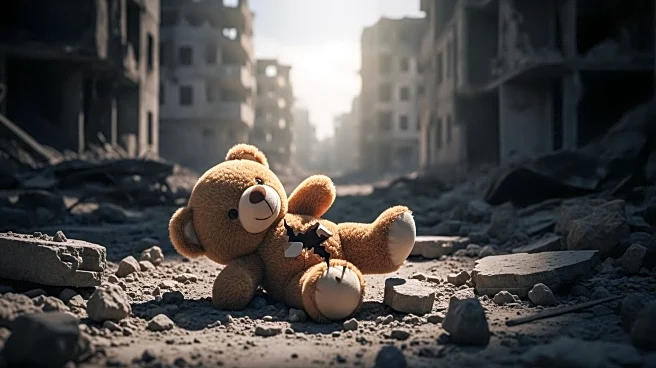What's Happening?
The ongoing conflict in Gaza has resulted in the deaths of an estimated 20,000 children, with many more orphaned and experiencing severe trauma. Indirect peace talks between Israel and Hamas are underway in Egypt, involving President Trump's envoy Steve Witkoff and Jared Kushner. The war, triggered by a Hamas attack in 2023, has led to significant civilian casualties, with UNICEF reporting disproportionate impacts on children. The humanitarian situation is dire, with widespread displacement and malnutrition among Gaza's population.
Why It's Important?
The high child casualty rate in Gaza underscores the severe humanitarian crisis and the urgent need for a resolution to the conflict. The trauma experienced by children has long-term implications for their mental health and development. The ongoing violence and displacement exacerbate the challenges faced by aid organizations in providing support and relief. The situation calls for increased international attention and intervention to protect vulnerable populations and ensure accountability for actions taken during the conflict.
What's Next?
Peace talks may lead to a temporary ceasefire or agreement, but the underlying issues of the conflict remain unresolved. Humanitarian organizations will continue to advocate for access to aid and support for affected populations. The international community may increase pressure on both parties to reach a sustainable resolution and address human rights violations. The long-term impact on Gaza's children will require ongoing support and intervention to mitigate trauma and promote recovery.
Beyond the Headlines
The conflict raises ethical concerns about the use of military force and the protection of civilians, particularly children. It highlights the need for comprehensive peace-building efforts and the importance of addressing root causes of the conflict. The situation in Gaza may influence regional dynamics and international relations, as stakeholders consider their roles in promoting peace and stability.









